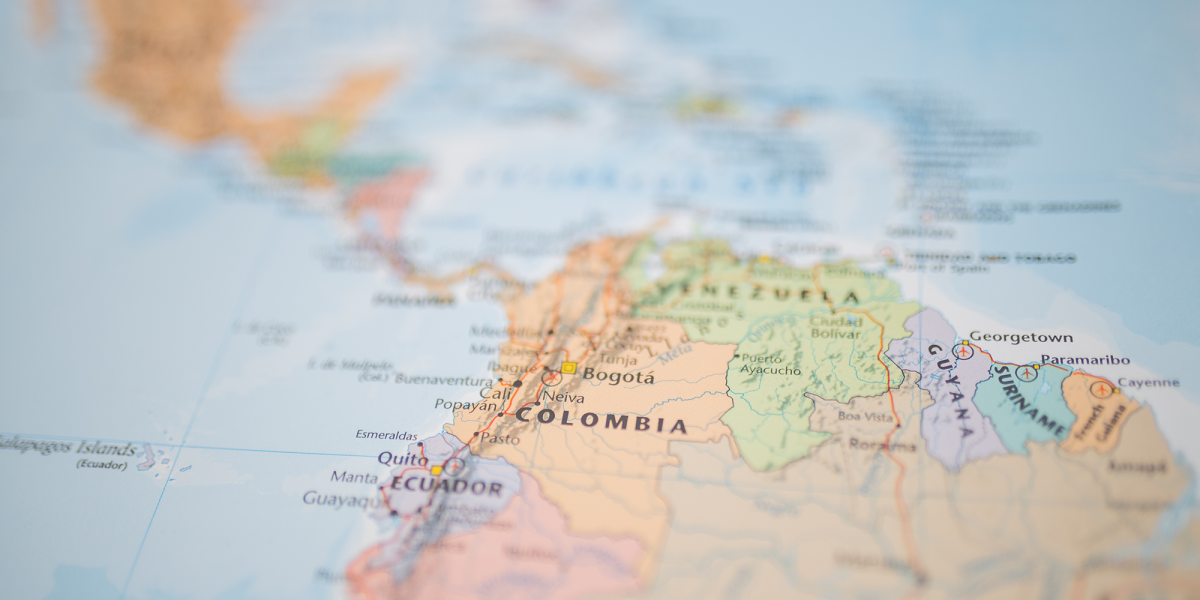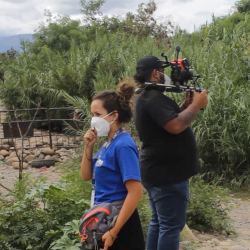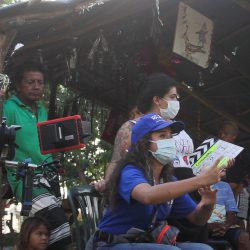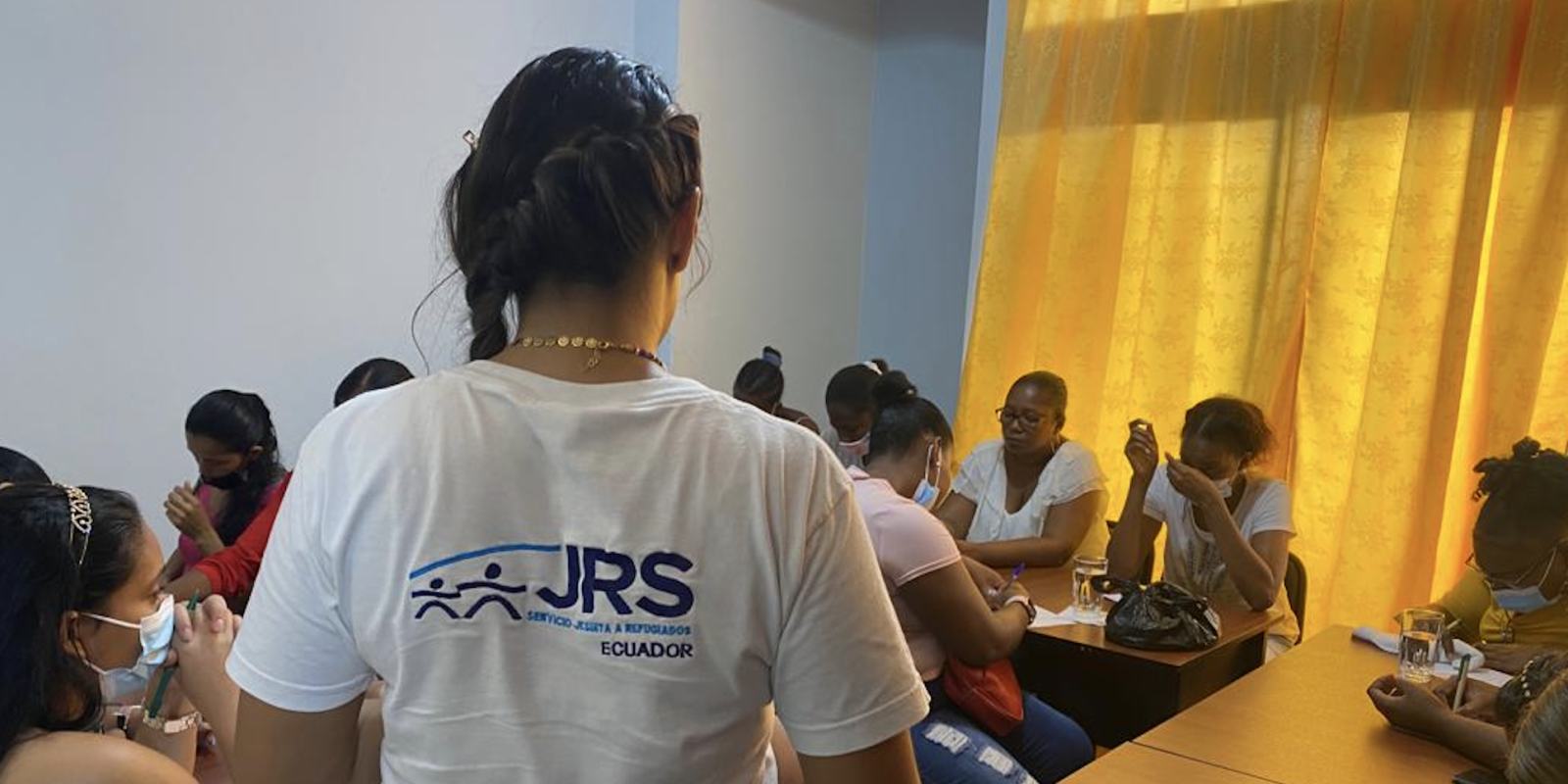On the border of Venezuela & Colombia, one JRS filmmaker is breaking new ground
01 June 2021|Anthony P. DiFlorio

This story first appeared in JRS INSIDER, a monthly newsletter including stories of impact across JRS global.
This month, we’re headed to Latin America, a continent teeming with migratory flows and one which I’ve long wanted to cover.
Multiple hotspot areas of migration stand out across the region, yet one continues to dominate humanitarian and political headlines: the semi-porous border between Venezuela and Colombia.
Closed passage and political strife have left Venezuelan migrants stuck in limbo, while COVID-19 enflames tensions between informal workers and Colombian citizens.
Throughout the crisis, our colleagues in JRS Latin American and Caribbean (LAC) and JRS Colombia have provided critical support via cash assistance, sanitation supplies, and shelter.
Teams like this need and deserve our support more than ever.
Now, one of our teammates is pushing further to collect & share their stories with the world.
 Armed with a camera crew, a distinct humanitarian vision, and backing from the US Department of State’s PRM Bureau, meet JRS filmmaker Katherin Alfonso.
Armed with a camera crew, a distinct humanitarian vision, and backing from the US Department of State’s PRM Bureau, meet JRS filmmaker Katherin Alfonso.
“My passion is human life experiences,” she tells me over exchanged emails.
“During COVID-19, I realized we had the amazing opportunity to advocate for migrants and refugees [while] doing high calibre communications products, such as Cinema 4D and movies.”
With degrees in audiovisual production and rural development, Katherin pitched to explore “Los Caminantes.”
The story captures, in part, the thousands of Venezuelan migrants walking across Colombia due to lack of opportunities at home, little to no reliable healthcare, basic necessities, and fear of political persecution.
While some Venezuelan migrants were turning back home due to lost work in the Colombian informal sector, others were just beginning their journey into Colombia, spurred by the COVID-19 pandemic.

They had no money to buy a return trip home, no chance to use legal transport services, and were forced to use informal pathways, known as trochas.
“We needed to do something more than provide humanitarian aid. With lots of xenophobic comments and attitudes raised…we needed to think about how to reconnect humanity.”
After the filming process of a short doc — “Caminanates” — in 2020, PRM decided to fund a new, six-part docuseries to go even further.
Now slated to publish through 2021, the series will highlight key sections of the migratory path and shed light on human rights violations.
As you can imagine, the road to production hasn’t come without serious obstacles: The Venezuelan government closed trochas while many migrants were without masks and PPE, increasing the risk of virus transmission.
The team was forced to remain small.
“People’s hope. People’s resilience.”
Over a year into the pandemic, multiple countries across South America are reeling from second and third waves of infections, while borders in Colombia, Ecuador, Peru, Chile, and Bolivia remain officially closed.
COVID-19 has disrupted and setback the process of asylum seeking across the region and globe.

Being so close to those forced “walkers” throughout the production process pushed Katherin to plan and design smarter strategies that respect human rights and provide dignity to all participants.
Her team was further challenged to reimagine the arc and format of the latest series.
The storyteller in her thinks about migration as an ever-evolving phenomenon stretched over time as much as physical space.
“When you migrate, your body reaches your destination first,” she tells me, “and after some time, your soul does.”
Each walker, each human is “carrying on their soul, their family, their loved ones, their dreams, and their hope to build a better future.”
The unique way to connect those aching bodies with their souls is through hospitality: the non-judgemental welcoming of the stranger lifted up across her latest film project.
When I ask her what keeps her hopeful despite all odds, she replies “People’s hope. People’s resilience.”
“When you see their faces, talk to them, and hear their stories, you realize that they are humans who, apart from their difficulties, have everything inside to renew themselves and are very strong to rebuild their lives again.”



